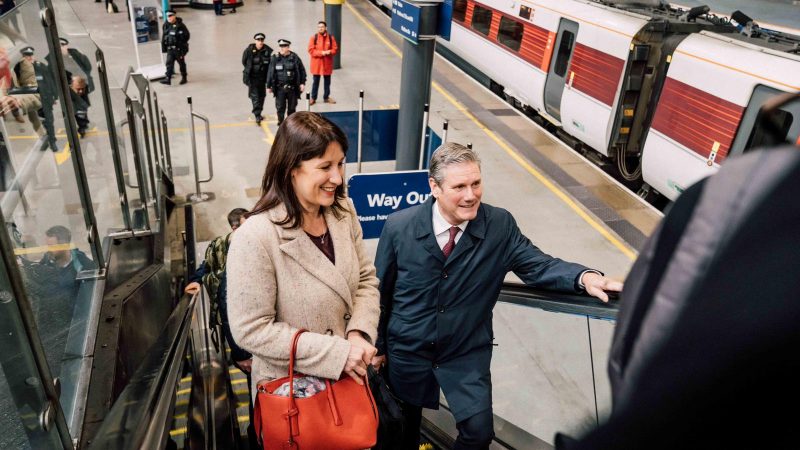
Rachel Reeves has said the nationalisation of industries the party previously pledged to bring into public ownership “just doesn’t stack up against our fiscal rules”.
In an interview on BBC Radio 4’s Today programme this morning, the Shadow Chancellor argued that commitments by Labour in 2019 to nationalise rail, energy or water as part of a manifesto that that “secured our worst results since 1935”.
Labour promised to bring the sectors into public ownership to help with the cost of living and drive down fares and bills not just in the 2019 general election but also as part of the policy offer put forward in the 2017 election.
Reeves indicated this morning, however, that the policy proposals were not compliant with the “fiscal rules” that she has set out that “all day-to-day spending will be funded by day-to-day tax revenues”. It is unclear how this impacts nationalisation, as such a proposal would be unlikely to be funded through day-to-day spending.
“Within our fiscal rules, to be spending billions of pounds on nationalising things, that just doesn’t stack up against our fiscal rules,” Reeves told Radio 4 listeners this morning.
The Shadow Chancellor said Labour had “scrapped the 2019 manifesto” and that promises to carry out nationalisation had been replaced by ideas such as reforming business rates and a commitment to “buy, make, and sell more in Britain”.
Keir Starmer is delivering a speech this morning in which he will say that Labour will “fight the next election on economic growth” and that the “defining task” of a Labour government under his leadership would be “rebooting the economy”.
“We’re setting out distinct policies under Keir Starmer, the plans today around industrial strategy, my commitments around a climate investment pledge, our plans to buy, make, and sell more in Britain, reforms to the business rate system. Those are the policies that will be going into the next election under Keir Starmer, not the policies of 2019,” Reeves said today.
Following the interview, a Labour Party spokesperson said: “We are pragmatic about public ownership as long as it sits within our fiscal rules – a point Rachel was underlining in the interview by referencing this framework. For example, we know there is a positive role for rail in public ownership.”




More from LabourList
‘Tackling poverty should be the legacy of Keir Starmer’s government’
‘The High Court judgment brings more uncertainty for the trans community’
‘There are good and bad businesses. Labour needs to be able to explain the difference’